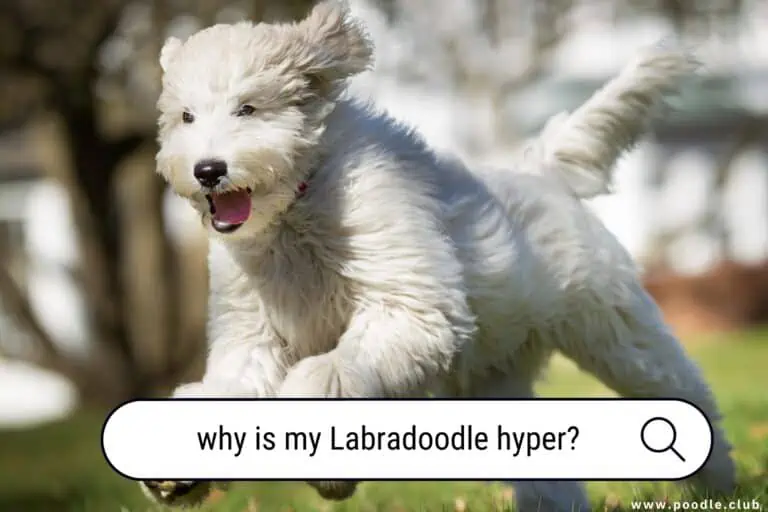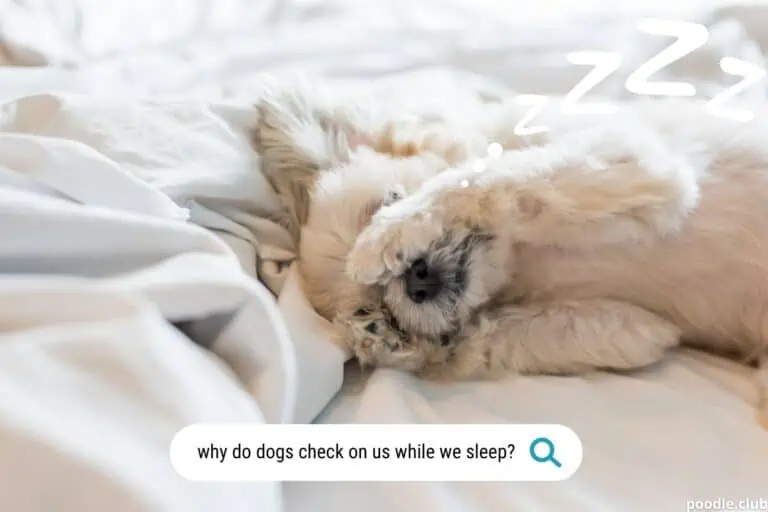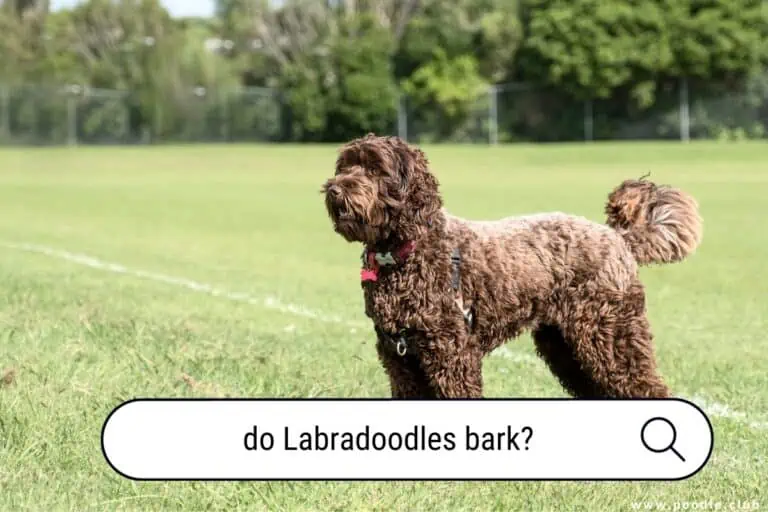Why Does My Dog Act Like A Cat? [13 Reasons]
Perching on window sills, chasing lasers, 3 AM zoomies — wondering what has gotten into your dog?
Don’t worry, it’s not possessed by your neighborhood cat’s spirit.
What’s new for you is not new in the dog world. If you are a worried dog parent with a cat-like pet, you are not alone. If you too wanna know why your dog is behaving in this peculiar way, keep reading.
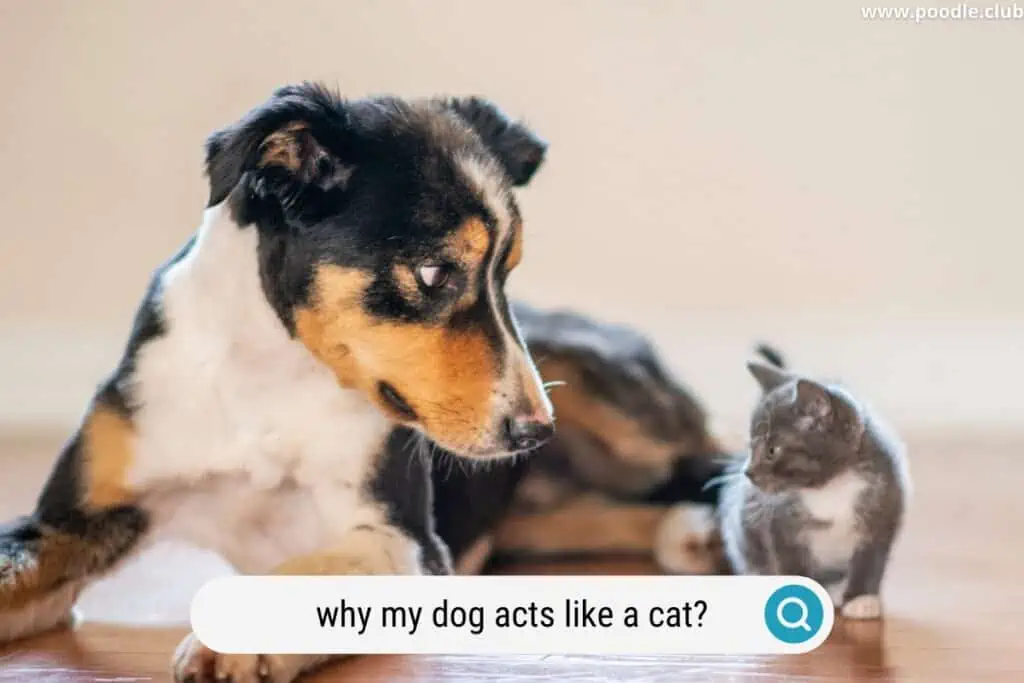
13 Reasons Why Your Dog Acts Like A Cat
Here are some reasons behind your dog’s cat-like behavior:
1. Your Dog Has An Independent Personality
Dogs are attention lovers. They want their family to constantly acknowledge them and include them in every activity.
However, it is not a hard and fast rule that every dog will behave like that. Some dogs are naturally independent and will make you rethink dog behavior.
Such dogs are self-sufficient and do not need constant companionship. They prefer to be alone enjoying their “me time” rather than “bonding time” with their pawrent.
PuppySpot is a reputable dog marketplace where you can browse and find compatible puppies right from the comfort of your home. They have placed over 200,000 puppies into homes in the US!
Such dogs are often considered reserved and aloof – something atypical to cats.
This independence is more prevalent in certain breeds like Alaskan Malamute, Siberian Husky, Basset Hounds, Greyhounds, and working dogs. However, any breed can behave independently.
If your dog is behaving so, there is nothing wrong with it. Just like humans can be introverts and extroverts, dogs too display a variety of behaviors too.
There is nothing that you can do in such a scenario.
A dog that is naturally independent will be so throughout its life. It is better to let it have its space instead of forcing things.
2. You Have Cats In Your Home
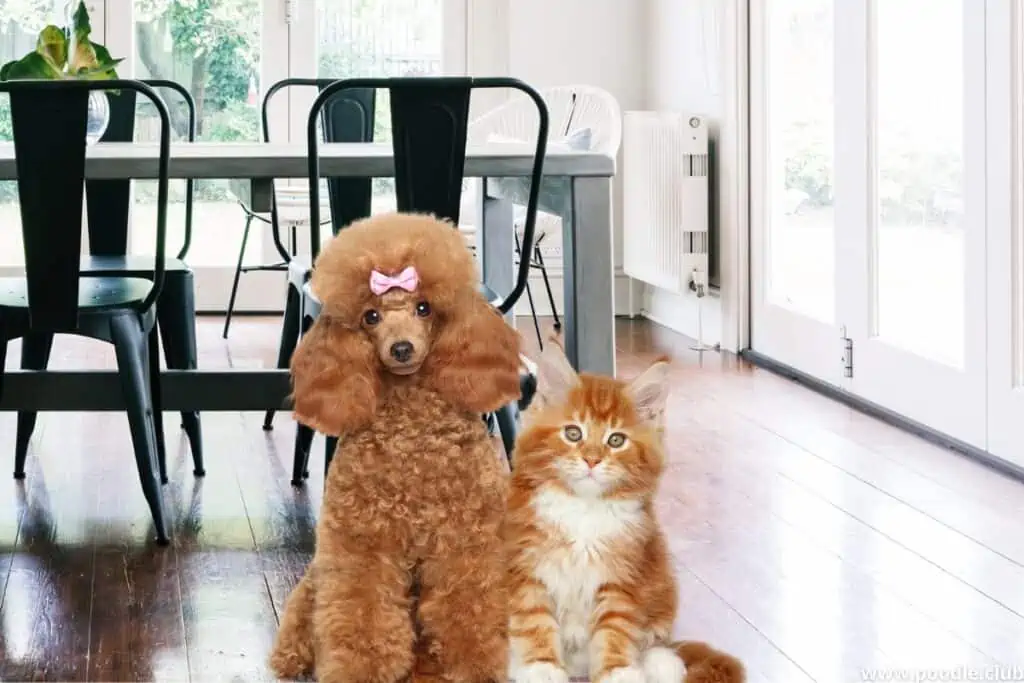
Dogs are intelligent and curious. They are also good at mimicking.
While a dog may pick up habits from its parents, it is not just human behavior that a dog will mimic. It can learn cat behavior as well.
So, if you find your pooch grooming itself or lying in the sun, it is just that it may have seen your cat do so and wondered, “What does that feel like?” Your dog may even be jumping up on high places to get a cat’s viewpoint.
After all, dogs can be “copycats” too.
A dog may not be able to come up with these unique ideas on its own, it can definitely get inspiration from its other four-legged friend.
Also, the behavior is more prominent when you bring a puppy to your cat-dominated home. As dogs are known to live in packs, a puppy will readily accept the pack at your home, even if it is led by a cat.
Now, for your puppy, the cat is the leader and it will mimic your cat’s behavior. The results are going to be more pronounced in a multi-cat household.
Moreover, every dog will behave differently. While some will pick up self-cleaning, others may jump up on places, yet others may copy purring.
So, if you have a cat in your house, it could be the reason why your dog behaves like one too.
3. Your Dog Is Incredibly Observant

Dogs are intelligent animals who can draw conclusions by observing things.
If your dog notices that your cat gets more attention doing what it does, your dog will follow in its footsteps.
Love your cat curling up in your lap? Do you reward it with lots of cuddles when it does so? Be ready for your dog to curl in your lap as well.
4. Your Dog Has A Skin Condition
Sometimes your dog may be mimicking a cat licking its coat due to skin conditions it has.
While cats lick themselves for grooming, dogs lick their coats when they are dirty or feel discomfort. Many times it is due to skin conditions that may be aggravating the dog. Licking is the dog’s attempt to make things better.
However, it does the opposite. Licking the infected area will only worsen the condition further. Thus, if your dog starts to excessively groom itself all of a sudden, it is better to consult your vet.
Some of the common skin conditions that initiate coat licking are yeast infection, mites, and irritation.
5. You Have A Cat-like Breed
Yups, you heard it right.
Some dog breeds actually display cat-like characteristics.
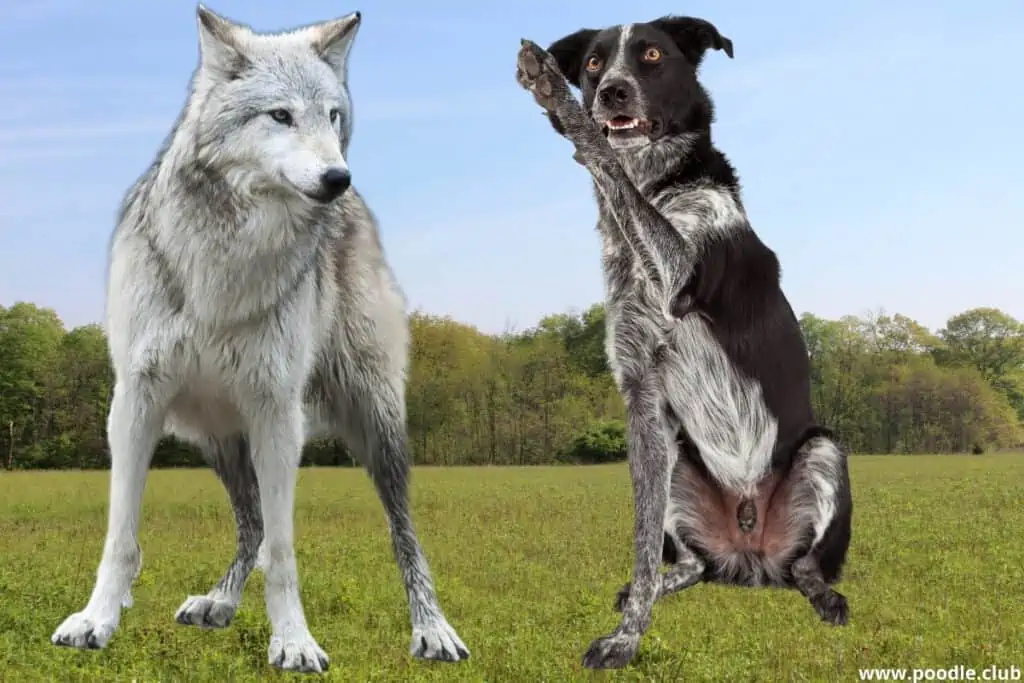
While both are wonderful in their own way, some have overlapping characteristics that can confuse their owners. Such dog breeds will have a penchant for cat-like behaviors.
So, if you are both – a dog and cat person but only prefer dogs as pets, try these breeds.
They may be bigger than your average kitty but will remind you of cats every other day. Whether it is lounging in a sunny spot on the couch, rodent hunting, self grooming, or independence, these dogs will not cease to amaze you.
Some dogs that are inclined towards cat-like behavior are Italian Greyhounds, Basenjis, Shiba Inus, Whippets, Manchester Terriers, and Poodles.
So, if you have recently brought one of these breeds and are shocked by their weird behavior, just chill, there is nothing wrong with your pooch.
6. Your Dog Doesn’t Like To Be Held Or Petted
Sometimes dogs can just be averse to petting or being held. Disliking being held or touched is generally attributed as a cat-like behavior, but it is also seen in dogs.
It is especially true for dogs that are rescued and adopted from shelters. It may be past experience, fear, or lack of trust that prohibits a dog from getting too close to its owner.
Also, this behavior is common in some dog breeds like Chow Chow and does not signify any kind of abuse.
7. Your Dog Is Litter-Trained
Many puppies before leaving for their forever homes are litter-trained by the breeder. It is done as initial training. Later as the puppy grows, it can be taught to take his business somewhere else, preferably outside.

However, some dogs may get too adapted to using a litter box and never take to doing potty outside.
While it is a common cat trait, dogs too can adapt to it. Also, it can be very beneficial in some cases, like for small breeds.
Small breeds have small bladders and need to pee frequently. It can be very inconvenient to repeatedly take the pooch outside. Also, if the weather is severe, say -20 degrees, it can adversely affect the dog’s health.
Just be prepared for “cat-like dog” comments from families and friends and you are good to go.
8. Your Dog Is Bored
Dogs love it when their human showers them with attention and playtime. However, when you are not around or are too busy to have some alone time with your playmate, it can get bored.
In such a case, your dog can start doing a few tricks to keep itself entertained. Jumping on chairs, tables, and couches is its way of doing some unassisted physical exercise.
It is a harmless coping mechanism that has a few benefits of its own like increasing the strength, balance, and agility of your fido.
9. Your Dog Needs Exercise
Dogs are active creatures that do not fare well sitting at home. Some may need moderate exercise while others have high energy and need a lot of exercise. In either case, all dogs do need some sort of exercise to keep themselves happy and healthy.

If you are unable to meet your dog’s exercise needs, it is natural that your dog will try to burn off its energy by jumping on couches and bouncing off the walls.
You may also find it running from one end of the wall to another and there is nothing to worry about. It will help in strengthening its muscles and improving flexibility.
Also, believe it when we say it is good that way. The other coping mechanism, the more common one is developing destructive habits like chewing, growling, licking, and digging.
However, a dog’s exercise needs must not be overlooked and if you feel it is the reason behind your dog’s sudden change in behavior, better start on exercises.
10. Your Dog Wants A Birds-Eye View
Dogs have always been guarding humans and their properties. They also protect their pack members and anyone they consider family.

Sometimes, the dog may take its position too seriously. Wanting to protect its pack and humans, the dog has to be alert and on a constant watch out.
However, peeking from the window may not be possible if the window is designed too high or your baby is too short.
A dog not going to quit though.
It will find the solution to the hitch and protect its family at all costs.
It will hoist itself onto couches, tables, and chairs, and even jump on them to have a clear view out of the window. If you have a cat, inspiration will strike faster. Even if that’s not the case, your dog will eventually figure things out itself.
Once perched on the furniture, the dog can have a telescopic view of the outside and survey the surrounding. You can shut down your surveillance camera and put out your “Dog On Guard” sign.
However, it is not always protection that your pooch is aiming for. Sometimes it may be looking for food. Your small bugger may be hopping on kitchen chairs and tables to treat itself to snacks and treats.
11. Your Dog Could Have Anxiety
Excessive licking can also be a sign of anxiety. Although more common in adopted dogs that may have a traumatic past, but it can also happen to other pets suffering from separation anxiety and other such issues.

It is basically an obsessive-compulsive disorder where the action is performed without a need for it. So, your dog is comforting itself by licking its fur over and over again.
It may look like it is not something to worry about, however, it is a cause for concern. It can become a full-on issue if the habit is not weaned off at its initial stages. Also, the dog can severely hurt itself doing these antics.
12. Your Dog Is Seeking Attention
Dogs are attention seekers. They love to be the center of the world of their owners. And when they do not get that attention, they are not going to like it. Especially when the pawrent is someone who devotes a lot of time and attention to their baby but for some reason is not able to care as much.
Well now, it is a challenge!
The dog will do anything in its power to attract attention and that includes misbehaving.
They will test their owners’ boundaries and if old tactics do not work, they can come up with new tricks to grab their attention.
Any action that produces a reaction will be repeated. So, if you say a stern “NO” to your dog when walking at the edge of the couch, or make a fierce face when it sits on the windowsill, it will consider the reaction as a reward.
And these actions will be repeated.
13. Dogs Are Social Animals
Dogs live in packs. And you as a parent are a part of that pack too.
But if you are the beta, who is the alpha? Hope it’s not the dog itself, as that can be a very difficult situation. Who can it be then?
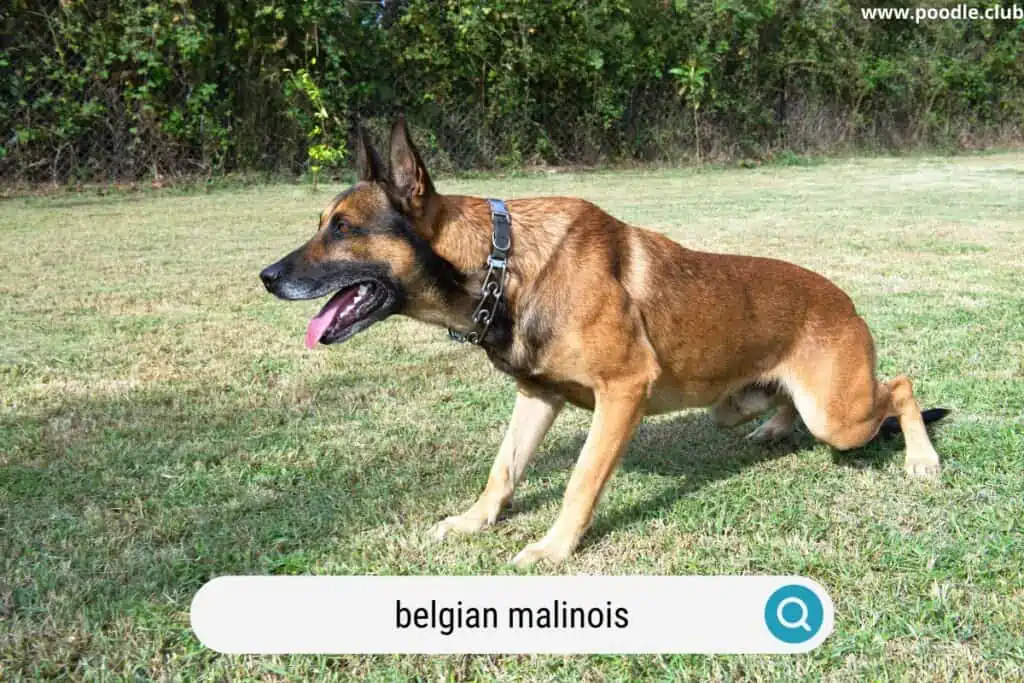
Yes, you guessed it right. It’s your cat.
Puppies, when adopted, appoint someone as the pack leader. And if you happen to have an older feline, it will most probably be them.
They become the dog’s source of inspiration from whom they learn habits and follow “orders”. So, inheriting cat-like behavior is an eventuality in such cases.
Also, even if you are in fact the pack leader, a dog may still look up to its feline companion in your absence.
Conclusion
Every dog has a different personality and sometimes a dog may redefine itself as a cat.
In most cases, it is not something to worry about as they are just habits gathered on a life’s journey.
However, if you feel that your dog had a sudden shift in behavior or has some medical condition, it is better to get it examined by a vet.
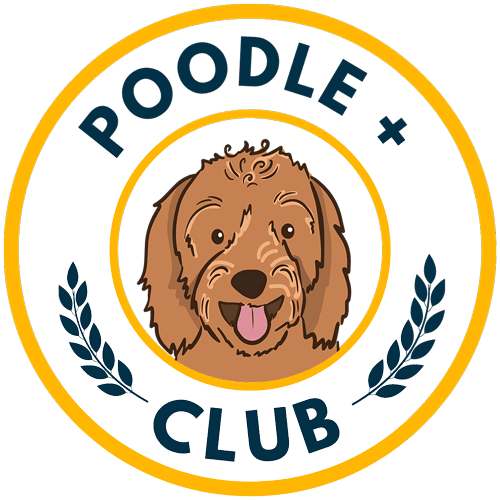

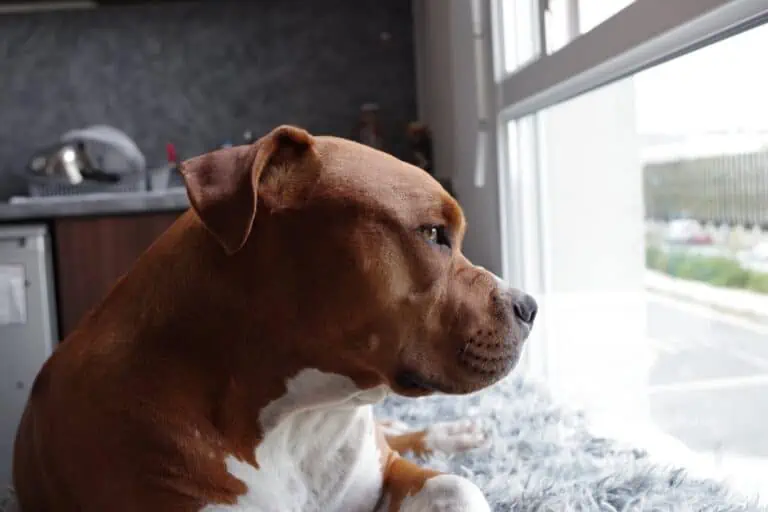
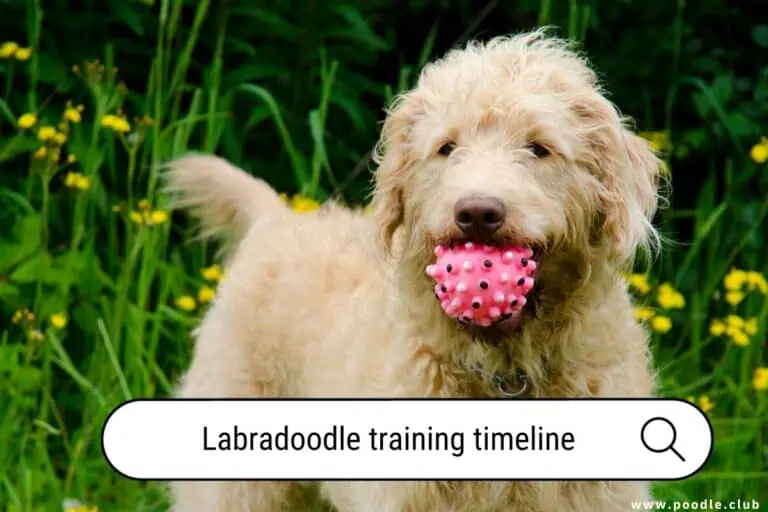
![Teacup Poodle Complete Guide [+ Photos]](https://poodle.club/wp-content/uploads/2022/12/teacup-poodle-768x512.jpg)
